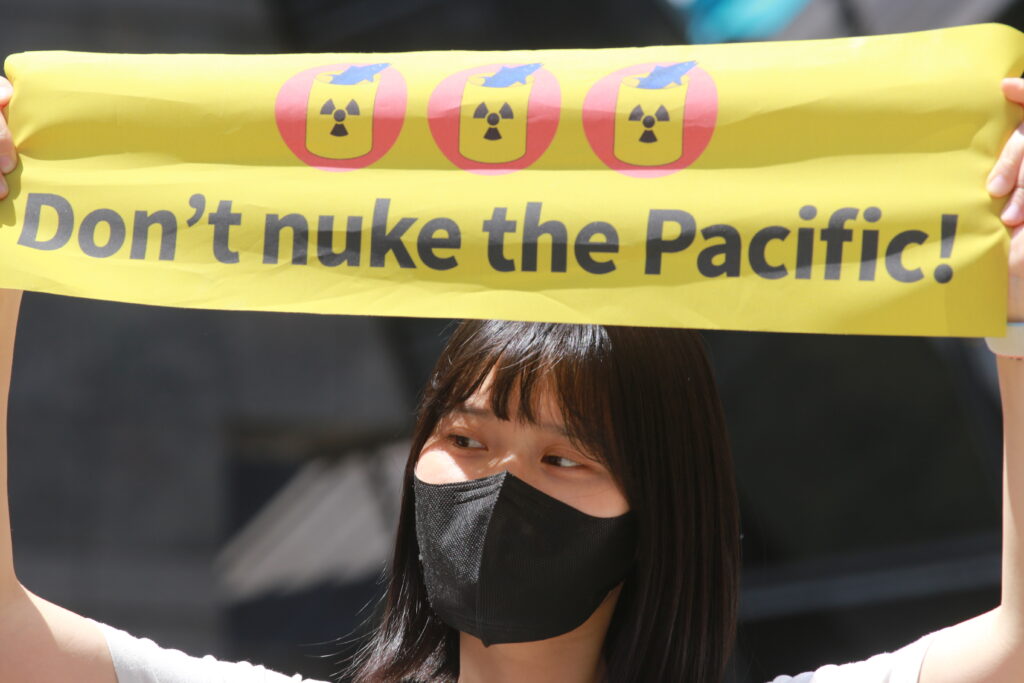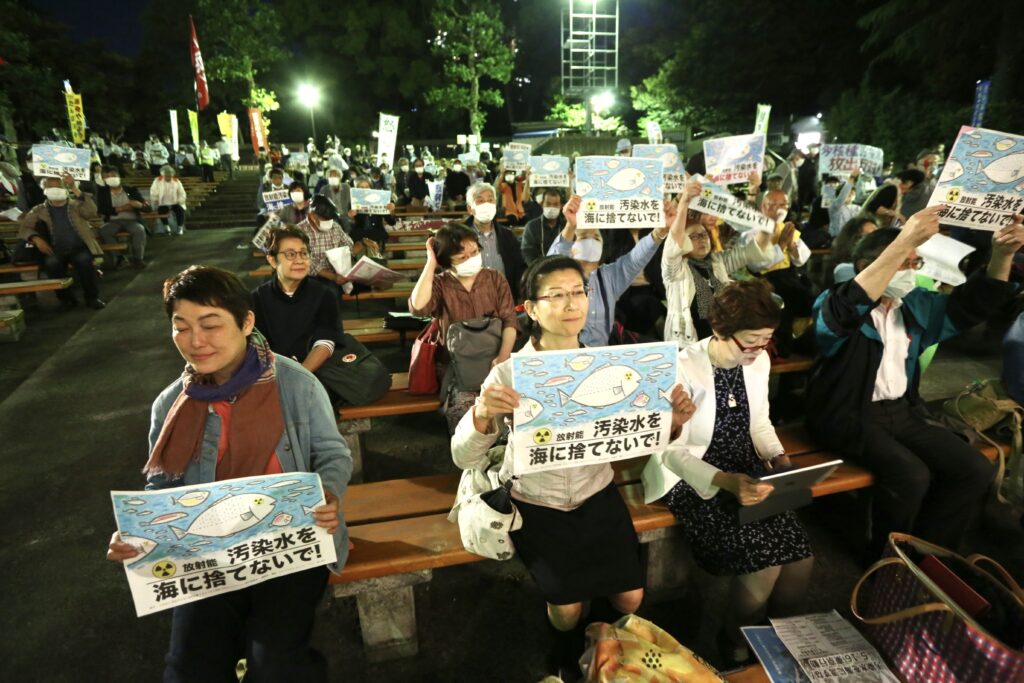



TOKYO: A group of around 150 Japanese and Koreans gathered in front of the headquarters of the Tokyo Electric Power Company (TEPCO) on Tuesday in opposition to the discharge of water containing tritium into the Pacific Ocean.
After delivering letters of protest to TEPCO officials, lawmakers and government officials, the demonstrators took to the streets of Tokyo to voice their message.
According to the letters of complaint submitted to TEPCO and the government, 1.32 million tons of water stored in the reservoirs of the plant is planned to be released into the ocean over a period of 30 years, starting as early as July this year.
Four Korean environmental organizations took part in the protest. Ester Yu of the YWCA said she regretted that the Korean government did not pay more attention to reports from environmental groups on the potential consequences of the discharge of water containing tritium from the damaged Fukushima Daiichi nuclear power plant.
The measure, which was to take place at the end of the spring, was delayed by fishing companies opposed to the measure. TEPCO, the plant’s operator, implemented monitoring measures to reassure those concerned by the discharge.
YANAI Takayuki of the Onahama Port Fishing Cooperative Association in the Fukushima area said it was too early to measure the long-term effects of radiation on fish. Other protesters added that the measurements did not take into account the real environment of the ocean such as the concentration of radioactive materials that can deposit in living organisms.
SAKIYAMA Hisako, who was a member of the independent parliamentary commission of inquiry into the Fukushima nuclear accident, says that tritium, when it penetrates living organisms, releases beta rays and affects the organism’s DNA.
In total, 16 Asian states, including Micronesia, remain opposed to the release of the contaminated water into the Pacific Ocean.